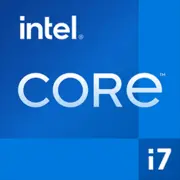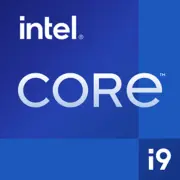Advantages
- Higher Technology: 10 nm (10 nm vs 10 nm (intel 7))
- More Total Cores: 24 (16 vs 24)
- Higher Performance-core Max Turbo Frequency: up to 5.8 GHz (up to 5.2 GHz vs up to 5.8 GHz)
- Larger L3 Cache: 36 MB (shared) (30 MB (shared) vs 36 MB (shared))
Basic
Intel
Label Name
Intel
January 2024
Launch Date
January 2024
Mobile
Platform
Mobile
Core i7-14650HX
Model Name
?
The Intel processor number is just one of several factors - along with processor brand, system configurations, and system-level benchmarks - to be considered when choosing the right processor for your computing needs.
Core i9-14900HX
Raptor Lake-HX
Code Name
Raptor Lake-HX
Core i7 (Raptor Lake-HX Refresh)
Generation
Core i9 (Raptor Lake-HX Refresh)
CPU Specifications
16
Total Cores
?
Cores is a hardware term that describes the number of independent central processing units in a single computing component (die or chip).
24
24
Total Threads
?
Where applicable, Intel® Hyper-Threading Technology is only available on Performance-cores.
32
8
Performance-cores
8
8
Efficient-cores
16
2.2 GHz
Performance-core Base Frequency
2.2 GHz
1600 MHz up to 3.7 GHz
Efficient-core Base Frequency
1600 MHz up to 4.1 GHz
up to 5.2 GHz
Performance-core Max Turbo Frequency
?
Maximum P-core turbo frequency derived from Intel® Turbo Boost Technology.
up to 5.8 GHz
80 KB (per core)
L1 Cache
80 KB (per core)
2 MB (per core)
L2 Cache
2 MB (per core)
30 MB (shared)
L3 Cache
36 MB (shared)
Intel BGA 1964
CPU Socket
?
The socket is the component that provides the mechanical and electrical connections between the processor and motherboard.
Intel BGA 1964
Yes
Multiplier Unlocked
Yes
22.0x
Multiplier
22.0x
100 MHz
Bus Frequency
100 MHz
10 nm
Technology
?
Lithography refers to the semiconductor technology used to manufacture an integrated circuit, and is reported in nanometer (nm), indicative of the size of features built on the semiconductor.
10 nm (intel 7)
55 W
TDP
55 W
100°C
Max. Operating Temperature
?
Junction Temperature is the maximum temperature allowed at the processor die.
100°C
Gen 5, 16 Lanes (CPU only)
PCI Express Version
?
PCI Express Revision is the supported version of the PCI Express standard. Peripheral Component Interconnect Express (or PCIe) is a high-speed serial computer expansion bus standard for attaching hardware devices to a computer. The different PCI Express versions support different data rates.
Gen 5, 16 Lanes (CPU only)
Memory Specifications
DDR4, DDR5
Memory Type
?
Intel® processors come in four different types: Single Channel, Dual Channel, Triple Channel, and Flex Mode. Maximum supported memory speed may be lower when populating multiple DIMMs per channel on products that support multiple memory channels.
DDR4, DDR5
Dual-channel
Memory Channels
?
The number of memory channels refers to the bandwidth operation for real world application.
Dual-channel
Yes
ECC Memory
Yes
GPU Specifications
UHD Graphics 710
Integrated Graphics Model
?
An integrated GPU refers to the graphics core that is integrated into the CPU processor. Leveraging the processor's powerful computational capabilities and intelligent power efficiency management, it delivers outstanding graphics performance and a smooth application experience at a lower power consumption.
UHD Graphics 770
Benchmarks
Geekbench 6 Single Core
Core i7-14650HX
2716
Core i9-14900HX
2969
+9%
Geekbench 6 Multi Core
Core i7-14650HX
13858
Core i9-14900HX
17655
+27%
Geekbench 5 Single Core
Core i7-14650HX
1964
Core i9-14900HX
2053
+5%
Geekbench 5 Multi Core
Core i7-14650HX
14326
Core i9-14900HX
19393
+35%
Passmark CPU Single Core
Core i7-14650HX
3844
Core i9-14900HX
4328
+13%
Passmark CPU Multi Core
Core i7-14650HX
39286
Core i9-14900HX
47009
+20%
Related CPU Comparisons
Share in social media
Or Link To Us
<a href="https://cputronic.com/cpu/compare/intel-core-i7-14650hx-vs-intel-core-i9-14900hx" target="_blank">Intel Core i7-14650HX vs Intel Core i9-14900HX</a>







